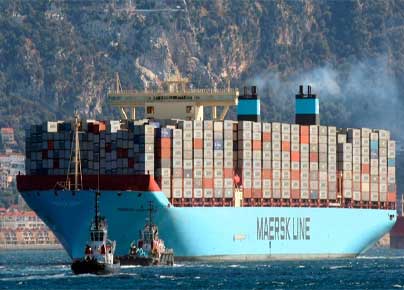Maersk sets a new chartering record with a deal of $150,000 daily
2024-06-28

As liner operators become desperate for ships, charter rates have hit the $150,000/day mark.
Maersk Line has agreed to pay this to charter Taiwanese regional carrier TS Lines' 7,000 teu building in Kota Valparaiso for three months.
Just two weeks ago, CMA CGM chartered its sister vessel, Kota Callao, for $100,000/day, a record. After being employed by CMA CGM and Maersk, they will begin a long-term charter with Pacific International Lines. Last month, CMA CGM took another of TS Lines' 7,000 teu ships, T.S. Dubai, for $80,000/day for three to four months.
TS Lines commissioned the ships from Shanghai Waigaoqiao Shipbuilding during the Covid-induced peak, intending to expand into long-haul routes. However, some vessels were chartered out when the market corrected last year.
Maersk and CMA CGM could assign the vessels to their Asia-South America services, where rates have hit near two-year highs.
Meanwhile, Linerlytica said today the 1.62m teu of new buildings delivered so far this year had been fully absorbed by the market after the Red Sea crisis caused operators to divert around the Cape of Good Hope, effectively removing more than 1.6m teu from the market since December. The consultancy said: "There remains a shortage of ships globally, with freight and charter rates continuing to surge as the market enters the traditional summer peak season. Charter rates continue to set new benchmark highs across all size segments, with fixture periods also rising in tandem. Carriers are forced to pay substantial premiums on shorter-term charters." Logistical bottlenecks are another factor in the tight vessel availability. Linerlytica estimated that the recent increase in port congestion has removed a further 500,000 teu from circulation. The active fleet is just over 25m teu, below the 25.5m teu at its December peak.
Global port congestion remains elevated, with the situation at Southeast Asian hubs, particularly Singapore and Port Klang, remaining challenging. Last week, 2.5m teu of ships queued for berths worldwide, accounting for 8.4% of the global fleet. The bunching of ships arriving from Asia has caused more berthing delays in northern Europe, particularly Rotterdam.









